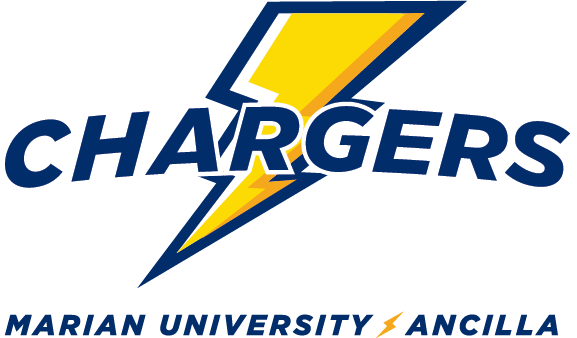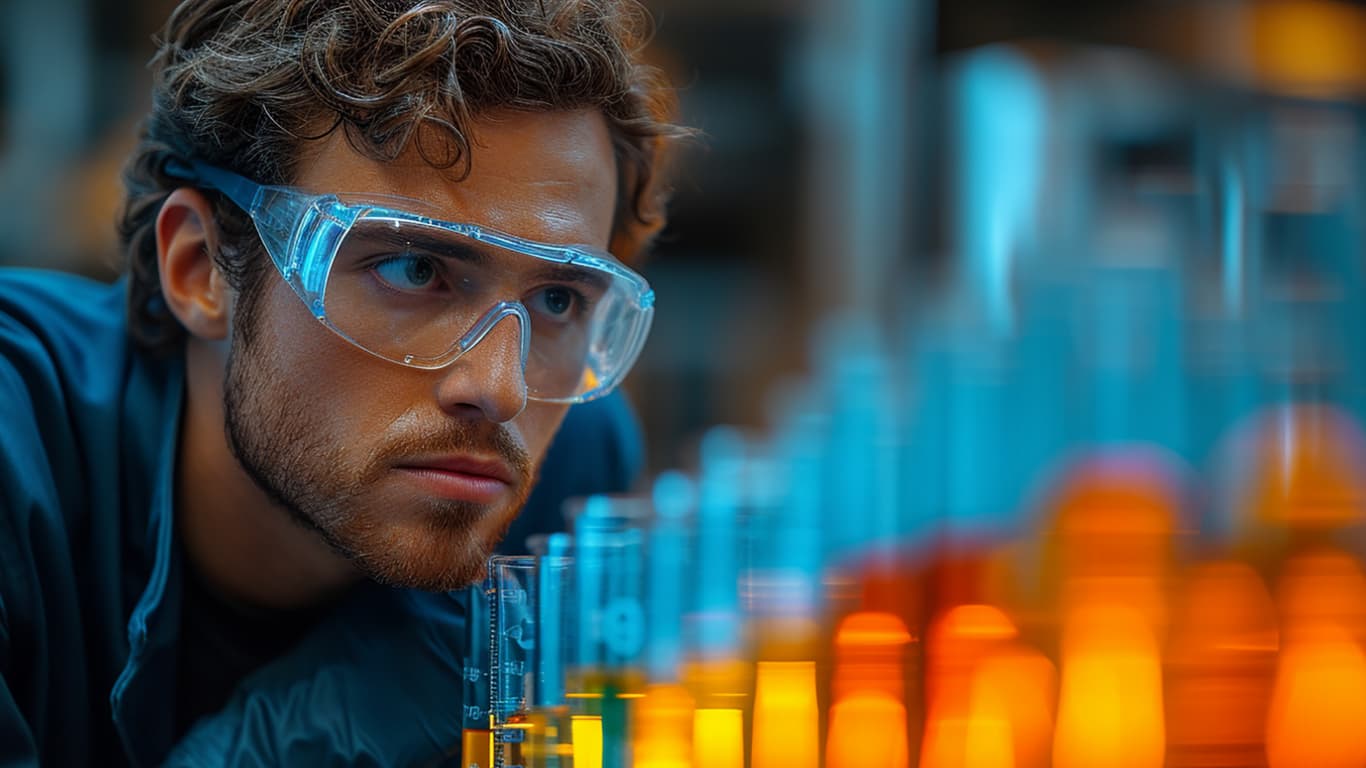Bachelor of Science
As a B.S. in chemistry major at Marian, you will complete at least 128 total credits, including required general education, core, and elective courses.
Through our high-impact, experiential curriculum you’ll gain the technical and cognitive skills needed to:
- Design and perform a wide array of laboratory experiments.
- Analyze complex substances using state-of the-art instrumentation.
- Show creativity and innovation through your coursework and research.
- Prove that you are an independent thinker by conducting your own research investigations.
- Develop and showcase your ability to communicate inspiring concepts and ideas by writing, speaking, and presenting your work to diverse people in various settings.
- Demonstrate specialized scientific and technical knowledge that is attractive to employers and graduate programs, including medical schools.
You will also take courses that enable you to study and explore current trends, challenges, and opportunities in the field.
- Courses are specifically sequenced to provide you with early foundational knowledge in chemistry, progressively building upon what you learn through your last semester as a senior.
- You will start with 100-level courses where you will master the fundamentals chemistry. Then you’ll progress into upper division courses in analytical, organic, and biological chemistry.
- You’ll explore the interdisciplinary impact of chemistry on topics like cell and gene therapy, cancer, disease, sustainability and environmental protection, and physics.
- Faculty will teach you to understand and appreciate scientific knowledge and methodology.
At least 60 credits focus on the chemical and physical sciences. You’ll complete courses such as:
- CHE 275: Practical Computational Chemistry
- CHE 300: Analytical Chemistry
- CHE 305-306: Organic Chemistry I and II
- CHE 325-326: Physical Chemistry I and II
- CHE 430: Advanced Inorganic Chemistry
You can also add a concentration in one of these fields to your plan of study:
- Bio-organic chemistry
- Chemical physics
- Environmental science
Depending on whether and which concentration you chose, you’ll complete courses like:
- CHE 270: Environmental Chemistry
- CHE 310-312: Biochemistry, Biochemistry I, and Biochemistry II
- CHE 315: Environmental Toxicology
- CHE 435: Physical Biochemistry
Throughout your studies as a chemistry major, you’ll also complete a two-credit chemistry seminar and one-to-four-credit special topics in chemistry courses.
In addition, you’ll have opportunities to complete directed research and independent study courses as well as earn two to six credits through an off-campus internship in chemistry.
You’ll work closely with your academic advisor to choose required and elective courses that (1) fit your career interests and/or (2) prepare you to be a competitive candidate for admission to graduate school, if plan to continue your education in a master’s or doctoral degree program.
Sample four-year plan and checklist
Bachelor of Arts
The 128-credit Bachelor of Arts in Chemistry degree curriculum includes general education, core, required, and elective courses that will give you a good understanding of chemistry concepts and theories.
- You will take courses that enable you to study and explore current trends, challenges, and opportunities in the field of chemistry.
- You’ll explore the interdisciplinary impact of chemistry on current topics, like cell and gene therapy, cancer, and disease.
- Because Marian is a leader in green chemistry education, you can choose courses which include a focus on sustainability and environmental protection.
- Faculty will teach you how to understand and appreciate scientific knowledge and methodology.
Courses are sequenced to provide you with early foundational knowledge in chemistry, progressively building upon what you’ll learn through your last semester. You’ll start with 100-level courses that teach you the fundamentals of general chemistry and physics. You’ll complete at least 34 credits in chemistry at or above CHE 151.
Required courses include:
- CHE 151-152: General Chemistry I and II
- CHE 300: Analytical Chemistry
- CHE 305: Organic Chemistry I
- CHE 325: Physical Chemistry I
- CHE 490: Chemistry Seminar
- MAT 230-231: Calculus and Analytic Geometry I and II
- PHY 110-111: General Physics I and II
- PHY 111: General Physics II
- PHY 201: Mechanics
- PHY 202: Heat, Electricity, and Optics
Sample four-year plan and checklist


